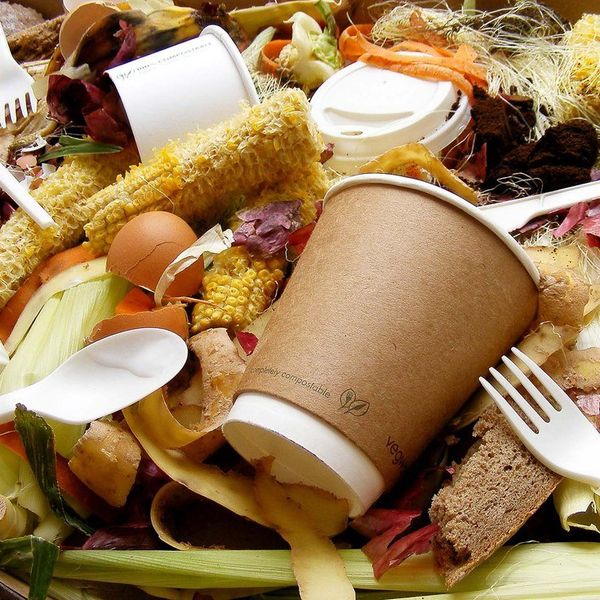Americans are some of the most wasteful people on the planet. It’s not hard to believe since consumerism pretty much haunts every aspect of our lives. Not everyone is content with the way our culture treats sustainability.
I had the pleasure of getting to know a student with a simple mission: To work toward a zero-waste life. Gwen Larned, Zero Waste Coordinator at Western Washington University, shares her reasons behind promoting a sustainable lifestyle and offers advice for others who want to do so.
Gwen sees the opportunity for businesses to take responsibility to incorporate sustainability, as well as herself. She first started to make a conscious effort in reducing her waste in summer of 2015. Being an environmental studies student and working in the Office of Sustainability on campus, she knows all too well the impact individuals have on the global waste crisis.
"Far too often, we just hear how awful everything we do is, and there is never a take-away, like how you can fix it -- other than just taking a shorter shower or riding your bike."
This lack of knowledge in our society caused Gwen to want to make a difference in her own life. She has since started measuring the waste she makes from purchases she makes every day; it took three months for her to get down to only producing 32 ounces of waste.
"Bellingham is blessed with its opportunities for sustainability . . . [T]he fact that we have composting on our campus is huge; most places in Washington don’t have composting.” Gwen says that the biggest thing a person can do to cut down on their waste is to stop buying things that are garbage, and most of our garbage comes from packaging. So, the real challenge ends up being how to avoid packaging.
"I really struggled for a while to eat things; I just bought a ton of produce because I didn’t know what the alternatives were." Gwen Shops at the Co-Op in downtown Bellingham. “I bring my jars and my bags and my produce bags and I get my shampoo and conditioner in reusable bottles.” You can get soy sauce and honey and peanut butter, all these things here, without packaging.
Most of the waste we produce is pointless; it's packaging and plastic that we don’t use. People can save time and money by just avoiding products that just end up in a landfill. Surprisingly, Gwen shared that most of our waste is either recyclable or compostable; people just don't know it is.
Some people make the mistake of over-recycling by recycling things like receipts, chip bags and plastic lined papers that are landfill. Many people tell Gwen that they want to go zero-waste but don’t have access or don’t feel empowered enough to do so.
"It is so much easier than you think, and it will be incredibly rewarding. It's one of those things that you can measure the progress with super easily, and once you make the transition and adjust a little bit, it saves you so much time and money and you are healthier, happier, and you inspire people every day."
There are many ways to be an environmentalist. If you are the type of person who wants to be anti-consumerism and anti-capitalism, going zero-waste is simply one way to make you feel like you are being a better person by living your values.
"It doesn’t matter if one person can't make a difference,” Gwen responds. “If you want to do it and can do it, then do it! You don’t have to do it because it's sustainable either; do it because it will save you money and you will eat a lot more vegetables."





















